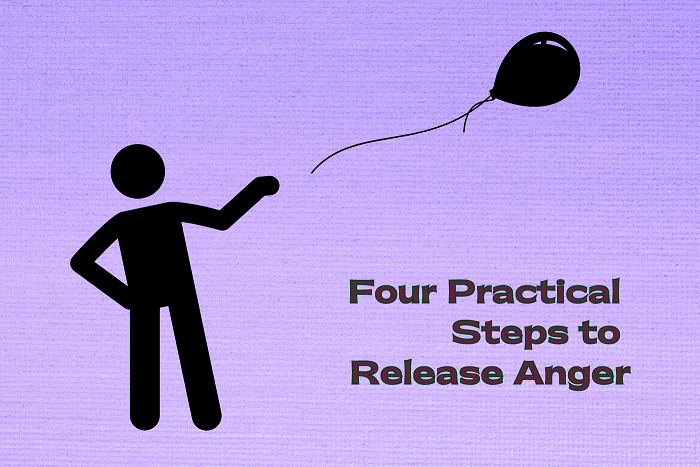Unlock four practical tips to release anger and find peace.
Please note - This post does contain affiliate links that provide me a commission if you buy a subscription with no additional cost to you. Thanks for your support!
Mastering Anger Management for a Calmer, Happier Life
Anger is an emotion everyone encounters, often leading to heightened stress, resentment, and even physical symptoms. It can feel empowering in the moment, but lingering in an angry state can have detrimental effects on your emotional and physical well-being. By learning to manage and release anger, you can find greater peace, improve relationships, and experience a more fulfilling life. This blog post delves deeper into four powerful methods discussed in our podcast episode, “Let Go of Anger,” to help you let go of this potent emotion.
1. Write It Down: The Therapeutic Power of Words
Writing is a productive way to manage anger by giving it an outlet. When you’re consumed with anger, your thoughts can become jumbled, intensifying your emotions. One effective technique is to write down what you’re feeling and why you’re feeling that way.
- The Process: Start by capturing every resentful or irritated thought on paper or in a digital document. Write a letter to the person who caused your hurt, telling them exactly what you think. Don’t hold back—yell on paper, curse, and allow your emotions to spill out.
- Emotional Release: Continue writing until you feel a sense of relief. Writing can sometimes bring you to tears, which is a cathartic release of pent-up emotions.
- Final Acts: Once it’s all out, destroy what you’ve written. Tear the paper up, burn it, stomp on it, or hit the delete button on your computer. This final act symbolizes letting go of those stored emotions.
2. Examine the Root Cause: Understanding Your Anger
Often, what triggers our anger is just the surface issue. The deeper, underlying cause is where the real work needs to be done.
- Reflection: Take time to reflect on what originally triggered your anger. Did a family member’s comment remind you of childhood hurt or past relationship trauma? These buried emotions often resurface when triggered.
- Deeper Insights: Acknowledge that your anger may not entirely be about the present situation but linked to older, unresolved wounds. Recognizing this allows you to deal with the root cause instead of cycling through anger.
3. Pause and Breathe: Mindfulness Techniques for Immediate Relief
When anger surges, it’s crucial to pause before reacting. This instant action can prevent potential mistakes and escalating conflicts.
- Counting to Ten: Your mother’s advice to count to ten is backed by psychology. This pause helps delay your immediate reaction.
- Mindful Breathing: Engage in mindful breathing exercises. Take deep, slow breaths, focusing on the act of breathing itself.
- Conscious Letting Go: Consciously decide not to give your anger any energy. Keep practicing this until the intensity of your feelings subsides, allowing you to think more clearly.
4. Delay Acting: Thoughtful Responses Over Instant Reactions
Even if your anger is justified and some action is necessary, acting out of rage can lead to regrettable consequences.
- Take Time: Give yourself time to cool down before you respond. Remind yourself that you are not your emotions and that the situation will still be there once you’ve calmed down.
- Rational Planning: With a clearer mind, you can plan a rational and appropriate response. This thoughtfulness helps prevent overreactions and potential damage to relationships.
- Constructive Actions: Aim for constructive, rather than destructive, actions. This might involve having a calm discussion to address the issue instead of an angry confrontation.
Conclusion: The Power of Letting Go
Managing and releasing anger is a skill that improves with practice. By writing down your feelings, examining the root cause, pausing to breathe, and delaying immediate actions, you can transform your anger into a pathway for personal growth and understanding. These strategies not only help in letting go but also in cultivating a more peaceful, balanced life.
For more insights and tips on emotional well-being, be sure to visit our podcast, “Receiving Miracles,” where we provide concise, impactful advice to help you lead a happier, healthier life.
These show notes were written with CastMagic. Try it for yourself for free. Get your account here!
Start your podcast on RSS.com for free here!
Need content for your podcast or blog? Check out Tools for Motivation!
The links above are affiliate links. This means my podcast will receive a small commission if you order through any of them at no additional cost to you. Affiliate commissions are one of the ways my podcast makes money so that I can create episodes free of charge. If you do purchase anything from my links, I sincerely would like to thank you for your support!






